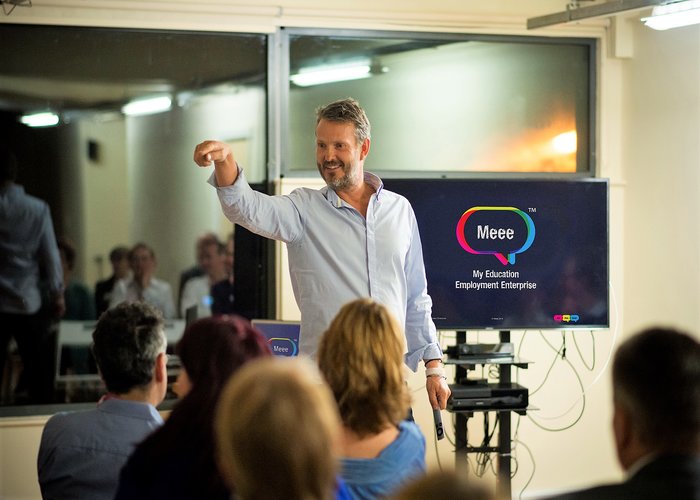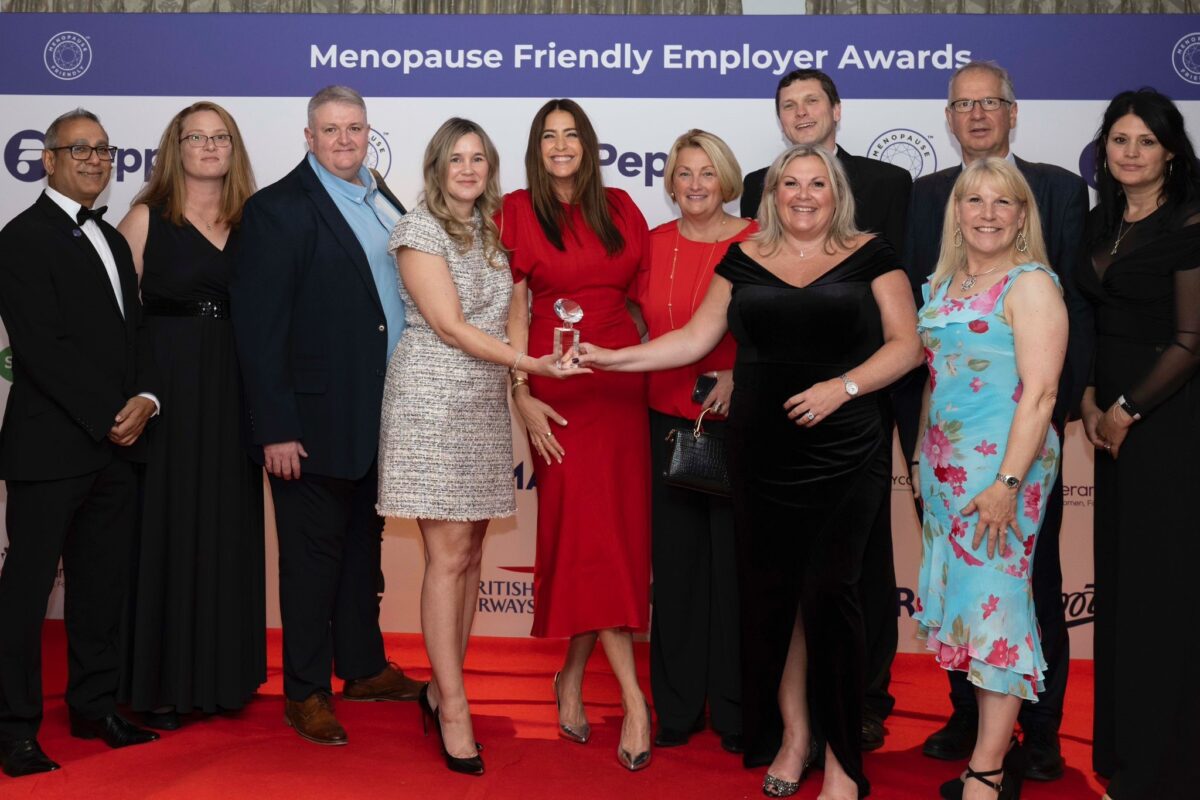J.U.S.T Start – How to get stuff done and nudge yourself and others into positivity

I love words, and although I have no idea what the difference is between a noun, verb or an adjective I am confident that the answers I need to describe things are within the magnificent 26 letters of the English alphabet.
There are approximately 6,500 languages in the world and every one of them has its own complexity and nuance. And new words are emerging all the time. For example, lexicographers have shown that the pandemic has led to an explosion of new words and phrases, including ‘Blursday’ and ‘Covidiot’ (that last one makes me laugh). But one of the quirks of the English language is that negative words seem to stick more readily than positive words.
This is important because according to English, Communications and Philosophy lecturer, Sara Pons-Sanz, “There is a direct relationship between a language and the society that uses it. Our needs, beliefs and history are fundamental principles that shape language.”
If the language we use shapes who we are, maybe it’s time to bring more awareness to what we say, to ourselves and to others. Maybe it’s time we used language as a tool to help us navigate the ups and downs of life more constructively.
The JUST rule
I recently hosted a podcast with John Meredith, Diocesan Director of Education for the Church in Wales in Swansea and Brecon. He told a story about his time in Ghana teaching which made me stop and think.
One day he invited his students outside to go for a walk. None of them were interested. So, he suggested that they all go outside and ‘Just look for movement’. When they did, they were all amazed how much they saw, discovered and learnt. What I love about that story is the word ‘JUST’. It’s such a humble, gentle little word. Nothing threatening about it at all. It is a sort of gentle invocation to give something a try. No pressure.
It can be incredibly easy, especially with our busy lives, to think or talk ourselves out of our best intentions or plans. So, I’ve started using the JUST rule. I love doing yoga, for example, but if I’ve had a long day, it can be easier to watch a bit of TV instead. Now, I say to myself, “Just 5 minutes”. ‘Just’ helps me to start and once I’ve started I feel better, so I almost always do more than 5 minutes. It’s a great little mind trick.
We often search for the big answers and big fixes, when in reality they don’t need to be massive, or monumental. Sometimes we just need little nudges to start. I am a great believer in the power of these little nudges or ‘micro-moments’ – the ability to actively take charge of our situation and emotions in the moment to help create positive momentum. I’ve written three Meee in a Minute books, each offering 60 one-minute micro-ideas and insights that can help us to shift our perception in life, family and at work.
So, next time you just need to get something done – think J.U.S.T:
J is for JOY:
I recently went to Wagamama in Liverpool for a client meeting and met Rosie the manager. Her joy was infectious, and we enjoyed exceptional customer service as a result. I was so impressed by Rosie that I wrote to the CEO Thomas Heier and to their website feedback section. What was lovely was the reply I received which said, “We take inspiration from ‘kaizen’ which means ‘good change’ in Japanese to ensure we continually improve in everything we do, from our menu offering to the service we provide, so it sounds like we have hit the mark during your dine with us”. It was a great reminder of the positive ripples that joy can bring.
Joy is only three letters, yet it has a real fizzy pop feeling to it (thank you Sarah Robinson for this expression). Next time you need to get something done or are a little low on energy imagine harnessing the energy of fizzy pop and just get started. You’ll be amazed at how the joy changes your outlook and makes anything more enjoyable.
Take a minute to think of something you need to get done. Maybe it’s something you’ve been putting off for a while. Do a dozen jumping jacks before you start or listen to your favourite music, have a little dance – whatever works for you to trigger a little joy. Once you get that fizzy pop feeling – jump in.
U is for UNDERSTANDING:
I recently reread James Clear’s wonderful book Atomic Habits. It’s chock full of practical ways to adopt new positive habits. Most of us don’t really understand how to construct positive habits or how to deconstruct negative ones. It’s all very haphazard because we don’t really understand the patterns and triggers that combine to work with us and against us.
For example, all habits begin with a ‘cue’ that triggers us to act in a habitual way. The cue is usually something from the environment that automates certain behaviour. Walking into a dark room triggers the need to see, which initiates a response to turn on the light. Think of it like, cue (dark room), problem (can’t see), solution (turn on the light).
All habits follow this path. Get up in the morning (cue), need to feel alert (problem), reach for the coffee (solution). Notification ping on your phone (cue), curiosity (problem), look at the phone (solution). Certain stimuli trigger habitual behavioural patterns. By better understanding these stimuli we can divert negative behaviour and build on positive behaviour.
Boston-based doctor Anne Thorndike wanted to improve her patients’ dietary habits without requiring them to make a conscious decision. Soda sales dropped by 11 percent and water sales increased by 25 percent simply by rearranging the hospital cafeteria so that the water, not the soda, was next to the cash register. Knowing these types of tricks can be hugely beneficial in helping us to foster positive habits.
Simple changes to our environment can make a big difference. Take a minute to think about something that you want to start or get better at (or stop). How can you change your environment to support your change? If you want to practice guitar, leave your guitar in the middle of the living room. If you want to eat more healthily – put healthy snacks on the sideboard instead of in the salad drawer. Make your cues as obvious as possible, and you’ll be more likely to respond to them.
S is for SMILE:
It’s amazing how powerful a smile can be, for ourselves and for others. We all have to do stuff from time to time that we are not that excited about. There are always so many other things that seem more interesting or enjoyable in the moment. But our tomorrows are created by the choices we make today. So, when you need to get stuff done, an assignment for class, a lesson plan if you’re a teacher or some chores if you’re a parent – just do it… with a smile on your face. Even if it’s a fake smile to start with. Smiling triggers the release of positive hormones which means even a fake smile can help to make us feel better.
A smile is one of the few facial expressions that is universally understood in the same way across all cultures. A smile may even determine how long you live. In a study of baseball card photos of Major League players in 1952, the study found that those players who were smiling in the photo’s lived seven years longer than the players who didn’t.
Clearly, we need to smile more. Children smile as many as 400 times a day whereas some of us grumpy adults manage less than five! Smiling is often the expression of kindness, and we desperately need more of that in the world.
Like smiling, acts of kindness are also contagious. Author Rutger Bregman argues for a new way of thinking about humanity reminding us that Covid is not the only virus that is contagious, our behaviour is also contagious. If we assume that most people are fundamentally selfish, and if we design our response to that view of human nature, then we’re going to foster more of that selfishness. But if we assume that most people are doing their best with the resources they have, are trying to be cooperative and want to help, then we can inspire that same acceptance and positivity in others. This may sound a bit cheesy, but there’s actually a lot of psychological research that shows that smiling and kindness are extremely contagious. They spread in a home, in a classroom in a society and across a social network.
Smile right now. Go on. If you are reading this on the bus or train smile. Smile at the next person that passes you in the street. Smile at your students. Smile at your family at home. And next time you just need to get stuff done put a smile on your face and crack on.
T is for TEACHING:
The famous French moralist and essayist, Joseph Joubert sought to revolutionise the act of teaching when he said, “To teach is to learn twice”. Every teacher must first be a learner in order to inspire learning in others. I love this!
There can be few professions where someone can have such a profoundly positive influence on another person. And we are all teachers to ourselves, our family and in the wider community. The teachers in our schools, FE colleges and universities also deserve far more recognition, support and financial reward than they currently receive.
Teachers are equipping our future generations with the tools, knowledge and know-how to run organisations, countries and solve enormous problems like climate change! Now if that was the responsibility for an organisation then money would not be an issue. And yet if we don’t properly equip our learners to be at their best and achieve their potential, we may not solve those pressing issues. We need new thinkers. We need thinkers to dare greatly and be the change the world needs.
Take a moment to think of the number of teachable moments you have in any day. Even if your job is not a teacher, we all have these moments where we are called to learn more and help others do the same. When you need to get going and get things done – find out the best way to do it, learn and jump in.
Remember, our tomorrow is decided by what we do and think about today. It’s determined by whether we face life’s ups and downs with courage and a smile on our face, or we shrink from the challenges. We all have challenges. We JUST have to rise above them, spread Joy where we can, Understand what’s needed, Smile, be kind and stay plugged into this endless cycle of learning and Teaching.
Be the change, bring about the change and believe that change is possible. Just Start.
Sid Madge is a transformation and change specialist and founder of Meee
Meee draws on the best creativity and thinking from the worlds of branding, psychology, neuroscience, education and sociology, to help people embrace change and achieve extraordinary lives.
From pupils to CEOs, we’ve helped thousands find their magic to transform themselves, their communities and their organisations. From leaders of PLCs and SMEs to parents, teachers, students, carers, the unemployed and prison inmates we help people excel.
Sid Madge is also author of the ‘Meee in Minute’ series of books which each offer 60 ways to change your life, work-, or family-life in 60 seconds.











Responses